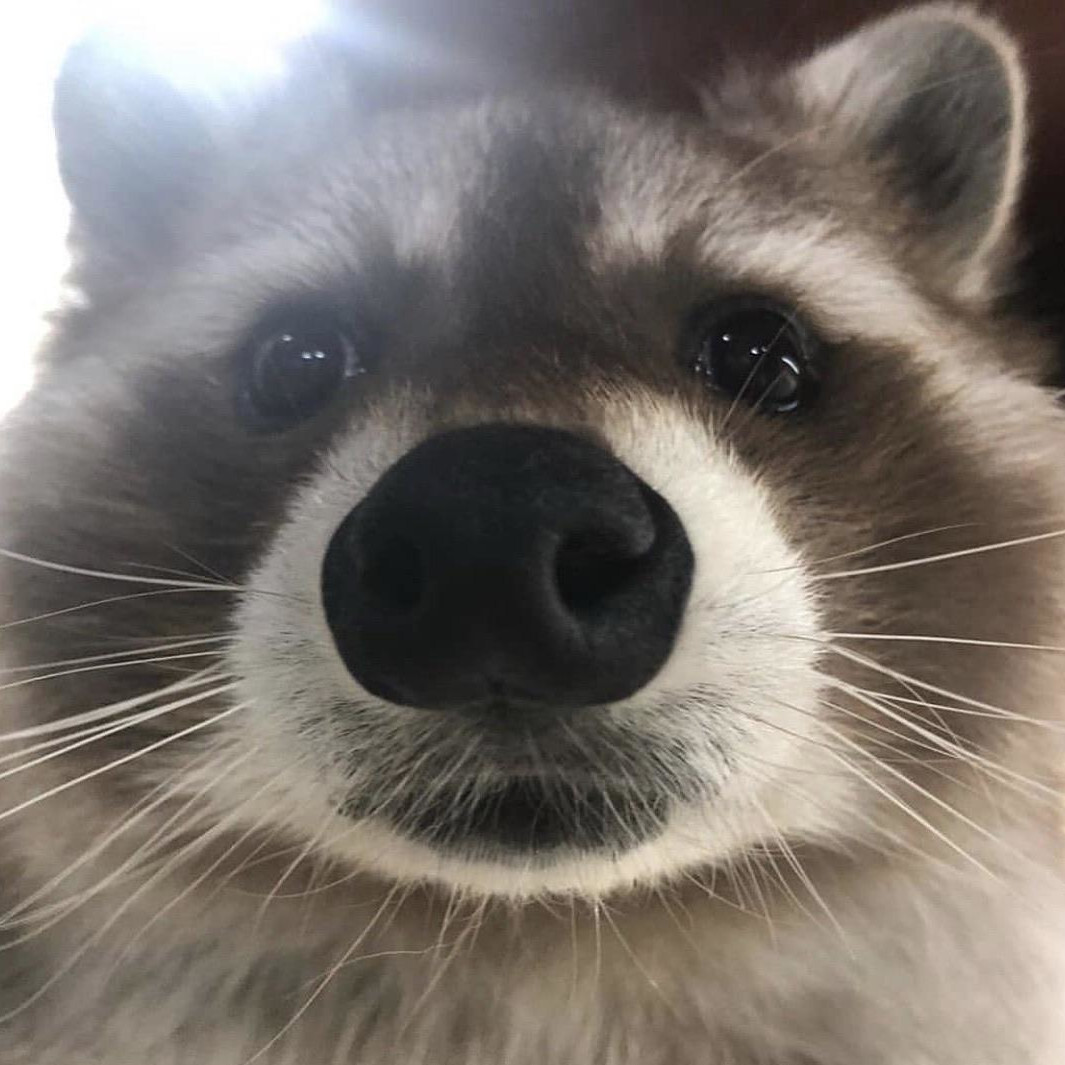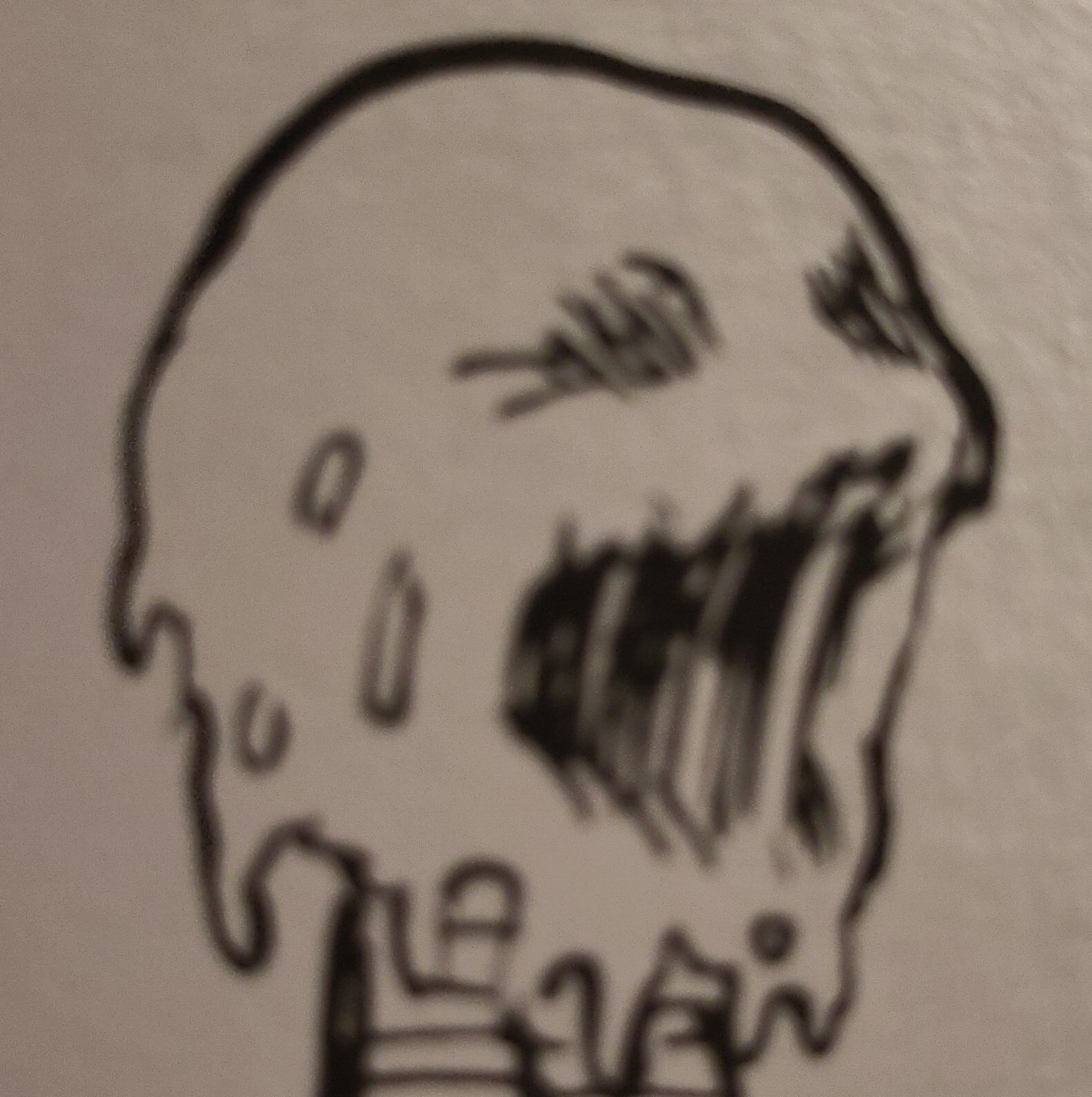The question that everyone has been dying to know has been answered. Finally! What will scientists study next?
The theorem holds true. The theorem states that the monkey has infinite time, not just the lifetime of our universe.
That’s just lazy science to change the conditions to make sensational headlines. Bad scientists!
This just in: scientists disprove validity of thought experiment; philosophers remain concerned that they’ve missed the point.
The universe is the cage and we are the monkeys. We have already written Hamlet.
It also makes a pretty bold claim about us actually knowing the lifespan of the universe.
How are they defining the end of the universe?
Probably very shortly after dinner has been served at that restaurant.
I think that was just a galaxy, not the whole universe.
You mean the Restaurant at the End of the Universe?
Hmm… i sit corrected.
But what does the Lord think about this?
The universe is believed to end just a few nanoseconds before a monkey finishes writing Hamlet.
Heat death would be my assumption, so between about 10^100 and 10^106 years
We know such an infinitesimally small amount about what is actually happening in the universe that any claims to be capable of predicting it’s end are patently absurd.
That’s not bold, we’ve known how long the universe will last for decades now.
Just because someone tells you something, doesn’t mean they actually know what they’re talking about. fyi
When multiple fields of science all agree, yeah they know what they’re talking about.
I just don’t get these anti-science types…
the monkey has infinite time
Use an infinite number of monkeys instead?
Infinite time is undefined though. We are not sure there was time before the Big Bang. Before anyone says “but there must have been,” consider that it’s just as paradoxical and mind blowing to imagine that time never had a beginning and just stretches infinitely into the past. How can that be so? It means it would have taken an infinite amount of time for us to reach this moment in time, and that means we never would have.
Infinite time is perfectly defined, it just doesn’t exist in our universe
deleted by creator
Why must the concept of time before the big bang (or after our heat death) exist in our physical reality for us to speculate about theoretical infinities past those? The thought experiment is about infinite time, not all the time in our limited universe. A lot of things happen at infinity that break down as soon as you add a limit, but we’re not talking limits when we’re talking infinity.
I think the implications behind there being infinite time in the past are fun if you assume that the universe works like a stochastic state machine. It means that either every finite event that has happened and will happen has already happened an infinite number of times or the universe is infinitely large.
How is the infinite monkey theorum “misleading”. It’s got “infinite” in the name. If you’re applying constraints based on the size or age of the universe, you are fundamentally misunderstanding the thought experiment.
Infinite monkeys would produce everything in the time that it would take to type it out as fast as anyone can type, infinite times. There would also be infinite variations of slower versions, including an infinite number of versions where everything but the final period is written, but it never gets added (same with every other permutation of missing characters and extra ones added).
There would be infinite monkeys that only type one of Shakespeare’s plays or poems, and infinite monkeys that type some number greater than that, and even infinite monkeys that type out plays Shakespeare wanted to write but never got around to, plus infinite fan fictions about one or more of his plays.
Like infinite variations of plays where Juliette kills Hamlet, Ceasar puts on a miraculous defense and then divides Europe into the modern countries it’s made up of today, Romeo falls in love with King Lear, and Transformers save the Thundercats from the Teenaged Mutant Ninja Turtles who were brainwashed to think they were ancient normal samurai lizards. Some variations having all of that in the same play.
That’s the thing about infinity. If there’s any chance of something happening at all, it happens infinite times.
Even meta variants would all happen. Like if there’s any chance a group of monkeys typing randomly on typewriters could form a computer, there would be infinite variations of that computer in that infinite field of monkeys, including infinite ones that are trying to stimulate infinite monkeys making up a computer to verify that those monkeys make up a valid computer worth building and don’t have some bug where the temperature gets too high and melts some of the monkeys or the food delivery system isn’t fast enough to keep up and breaks down because monkeys get too tired to keep up with necessary timings.
BUT, even though all of these would exist in that infinite sea of monkeys, there would be far more monkeys just doing monkey things. So many more that you could spend your whole lifetime jumping to random locations within that sea of monkeys and never see any of the random organization popping out, despite an infinite number of monkeys and societies of monkeys dedicating their whole existence to making sure you, specifically, can find them (they might be too busy fighting off the infinite number of monkeys and societies of monkeys dedicating their lives to prevent you from ever finding non-noise in the sea of monkeys).
Yeah sure, they’ll probably also have typed all posts on Lemmy, including those that have not been posted yet.
If those monkeys existed there is an infinite chance you are right.
It was the best of times, it was the blurst of times??
You stupid monkey!
I knew this would be a waste of time! *loads gun
I can’t remember the author or title, but that was the idea for a story I once read.
God sends an angel and the monkeys to do the job. They get close, but when the angel is doing the final read through he sees "…to be, or not to beee, Damn the ‘E’ key is sticking. " And they have to start over
So, while the Infinite Monkey Theorem is true, it is also somewhat misleading.
Is it though? The Monkey Theorem should make it understandable how long infinity really is. That the lifetime of the universe is not long enough is nothing unexpected IMHO, infinity is much (infinitely) longer. And that’s what the theorem is about, isn’t it?!
Except the lifetime of the universe is quite small when compared to infinity, so it doesn’t really convey how large infinity is because it’s so much more.
They don’t convey the same information.
Infinity isn’t really an amount of something.
> typeof Infinity 'number'Riddle me that, smart guy.
Damn, you just SLAMMED me.
Yes I know, but I was just trying to put into the perspective the person I was replying to.
This is clownery, humanity is infinite monkeys, and we wrote Hamlet ages ago.
Are they arguing it wasn’t random though? I mean Shakespeare had to think through the plot and everything, not just scribble nonsense on a page
The thought experiment suggests that over a long enough period of time, every possible combination of letters would be typed out on a keyboard, including Hamlet.
They are not arguing about randomness, as it is inherent to the thought experiment. Randomness is necessary for the experiment to occur.
They are arguing that the universe would be dead before the time criteria is met. It is a bitter and sarcastic conclusion to the thought experiment, and is supposed to be funny.
In conversation, it would be delivered like this:
“You know, over a long enough period of time, monkeys smashing typewriters randomly would eventually produce Hamlet”
“The universe isn’t going to last that long.”
Nobody asked but I had to share this
It’s important to me that everyone understands the joke, even if that understanding robs them of the joy of it. “Explaining a joke is like dissecting a frog. It kills it”.
But it’s important because I suffered a lot of being left out as a kid. Others found how good it felt to be exclusive, and shoulder me out of things, or refuse to explain things, or whatever it was that made me the outcast. I could tell from their faces that they love the way it felt when they did that to me. But it hurt me a lot.
I don’t want there to be any exclusivity anymore. Nobody deserves that pain. I want everyone to understand the joke, even if that prevents them from ever laughing at it.
Everyone keeps forgetting that we’re all just what monkeys evolved into…
Actually, both monkeys and us are what our common ancestors evolved into. Which was neither a human nor a monkey.
Yeah, that’s why we need at least… two of them.
the paper used the entire population (200 thousand) and would take some 10 ^ 10 ^ 7 heat deaths of the universe
It could happen the very first time a monkey sat down at a typewriter. It’s just very unlikely.
from the wiki article
https://en.wikipedia.org/wiki/Infinite_monkey_theoremIf there were as many monkeys as there are atoms in the observable universe typing extremely fast for trillions of times the life of the universe, the probability of the monkeys replicating even a single page of Shakespeare is unfathomably small.
… the probability of the monkeys replicating even a single page of Shakespeare is unfathomably small.
But not zero.
Basically nothing is ever truly zero
Someone wiser than me already said that it already has happened: 1 ape did, in fact, write the complete works of Shakespeare.
ape != monkey
I am.
Hello “Zero”!
The probability of lots of things is zero. The probability of a monkey typing a Chinese character on an English keyboard is zero.
Similar idea: there are an infinite amount of numbers between zero and one, but none of those numbers is two.
Weird how neither of those numbers are infinities. Almost like the numbers used are unfathomably small in comparison.
So you’re telling me… there’s a chance!
Sorry, I’m sort of lampooning comments like the one above and below you where people just can’t resist focusing on the possibility, no matter how ridiculously remote it seems. For myself, there’s a point of “functionally zero odds” that I’m willing to accept and move on with my life.
so you’re saying there’s a chance…
So you’re saying there’s a chance.
ok so the monkeys need to type faster
And we need more of them!
Let’s put them in open spaces in offices and micro-mananage then, that’ll work.
Irrelevant. The heat death of the universe is a constraint unrelated to the premise of the original problem.
I don’t think it’s a constraint, it’s more like a measuring stick to try to show how ridiculously long that time is
It’s really not that long, if we can’t get monkeys to write Shakespeare.
We could breed monkeys to much higher populations.
If we’re considering even chimps “monkeys”, there’s already eight billion of them, I think that’s enough.
enough to cut a few zeros of a number with 10 million of them
How is this a study? It’s just basic probability on a bogo sort style algorithm.
It’s not a “study”, it’s just 2 mathematicians having some fun. The paper is a good read, and as a math teacher I see a lot of pedagogical values in such publications.
I have a way to make it work.
Have the monkey write down a single character. Just one. 29/30 of the time, it won’t be the same character as the first one in Shakespeare’s complete works; discard that sheet of paper, then try again. 1/30 of the time the monkey will type out the right character; when they do it, keep that sheet of paper and make copies out of it.
Now, instead of giving a completely blank sheet to the monkey, give them one of those copies. And let them type the second character. If different from the actual second character in Shakespeare’s works, discard that sheet and give him a new copy (with the right 1st char still there - the monkey did type it out!). Do this until the monkey types the correct second character. Keep that sheet with 2 correct chars, make copies out of it, and repeat the process for the third character.
And then the fourth, the fifth, so goes on.
Since swapping sheets all the time takes more time than letting the monkey go wild, let’s increase the time per typed character (right or wrong), from 1 second to… let’s say, 60 times more. A whole minute. And since the monkey will type junk 29/30 of the time, it’ll take around 30min to type the right character.
It would take even longer, right? Well… not really. Shakespeare’s complete works have around 5 million characters, so the process should take 5*10⁶ * 30min = 2.5 million hours, or 285 years.
But we could do it even better. This approach has a single monkey doing all the work; the paper has 200k of them. We could split Shakespeare’s complete works into 200k strings of 25 chars each, and assign each string to a monkey. Each monkey would complete their assignment, on average, after 12h30min; some will take a bit longer, but now we aren’t talking about the thermal death of the universe or even centuries, it’ll take at most a few days.
Why am I sharing this? I’m not invalidating the paper, mind you, it’s cool maths.
I’ve found this metaphor of monkeys typing Shakespeare quite a bit in my teen years, when I still arsed myself to discuss with creationists. You know, the sort of people who thinks that complex life can’t appear due to random mutations, just like a monkey can’t type the full works of Shakespeare.
Complex life is not the result of a single “big” mutation, like a monkey typing the full thing out of the blue; it involves selection and inheritance, as the sheets of paper being copied or discarded.
And just like assigning tasks to different monkeys, multiple mutations can pop up independently and get recombined. Not just among sexual beings; even bacteria can transmit genes horizontally.
Already back then (inb4 yes, I was a weird teen…) I developed the skeleton of this reasoning. Now I just plopped the numbers that the paper uses, and here we go.
I think the point is less about any kind of route to Hamlet, and more about the absurdity of infinite tries in a finite space(time). There are a finite (but extremely large) number of configurations of English characters in a work the length of Hamlet. If you have truly an infinite number of attempts (monkeys, time, or both are actually infinite) and the trials are all truly random (every character is guaranteed to have the same chance as every other) then you will necessarily arrive at that configuration eventually.
As far as your process, of procedurally generating each letter one by one until you have the completed works, we actually have a monkey who more or less did that already. His name is William.
monkey who more or less did that already. His name is William.
???
Ol Bill Shakespeare. He wrote Hamlet, one correct letter at a time.
Well. technically he was an ape rather than a monkey.
Technically true, I think it still fits for the layman.
Humans are apes, apes are monkeys, paraphyletic groups are bullshit.
To be entirely fair, apes aren’t monkeys. I don’t think that particular distinction is really all that relevant to the discussion, but technically…
From wikipedia:
Traditionally, all animals in the group now known as simians are counted as monkeys except the apes. Thus monkeys, in that sense, constitute an incomplete paraphyletic grouping; however, in the broader sense based on cladistics, apes (Hominoidea) are also included, making the terms monkeys and simians synonyms in regard to their scope.
Oh neat. This is all taxonomy that is well beyond me. My defense of calling humans monkeys is that everyone does it, and that’s how language works. Glad to know I’m correct too, technically lol
Username checks out.
isnt that a misconception? apes just share a common ancestor with us
I think the point is less about any kind of route to Hamlet, and more about the absurdity of infinite tries in a finite space(time).
I know. It’s just that creationists misuse that metaphor so often that I couldn’t help but share my brainfart here.
You either spend your life really well or you have way too much time on your hands.
Either way I read your post with happy curiosity. 🙂
I feel like you might have interviewed for Google in the late 2000s
Among other problems, this fails to account for non-typing activities performed by the monkey, such as damaging the typewriter or attacking the researcher.
285 years increases to a few thousand if you alarmingly frequently have to clean the contents of a monkey’s colon out of a typewriter.
And at some point you’d want to further “refine” your selection process by “repairing” the typewriter to have fewer keys and/or causing the typewriter to jam after the required key press. Monkeys like to press the same key over and over again. Good luck getting them to stop once they’ve pressed a key once.
TL;DR monkeys are chaos, and this will not be easy.
This changes the rules though from check at the end to check at every letter. That’s where the real efficiency gain is… The insertion of an all knowing checker who could have written it himself anyway. The math of permutations vs combinations changes drastically if we change the rules.
The insertion of an all knowing checker who could have written it himself anyway
The checker does make all the difference, but he doesn’t need to be able to write it by himself. It could be even a brainless process, such as natural selection.
it is also somewhat misleading
…what? No it isn’t. Restricting the premise from infinite to any finite amount of time completely negates it. That doesn’t prove it’s “misleading”, it proves anyone that thinks it does has no idea what they’re talking about.
There’s still a chance that a monkey will type it on the first attempt. It’s just very small.
If I understand statistics correctly, it’s actually a 50/50 chance.
Ignoring the obvious flaw of throwing out the importance of infinity here, they would be exceedingly unlikely but technically not unable. A random occurrence is just as likely to happen on try number 1 as it is on try number 10 billion. It doesn’t become any more or less likely as iterations occur. This is an all too common failure of understanding how probabilities work.
The results reveal that it is possible (around a 5% chance) for a single chimp to type the word “bananas” in its own lifetime.
That sounds a little low to me. B and N are right next to each other, so I’d expect them to mash left and right among similar keys a lot of the time. Then again, I think we’re expecting some randomness here, not an actual chimp at a typewriter, but that’s probably more likely to reproduce longer works than an actual chimp.
I get annoyed when websites say something like, ´Using a password of this strength will take a a hacker one million years to brute force.´
No, it’ll take a million years to try every combination and permutation of allowed characters. Chances are your password will be tried much sooner than that.
When they say such things, the are probably talking about the expected value, where those chances are taken into account, just like the number calculated in this article.
And apparently
monkeyis only the 6th password attempt to try:https://en.m.wikipedia.org/w/index.php?title=List_of_the_most_common_passwords&action=edit§ion=3
deleted by creator
Lifetime of the universe is infinitely less than infinite time. So they solved for the wrong problem. Of course it may take longer than the life of the universe, or it may happen in a year. That’s the whole point of the concepts of infinity and true randomness. Once you put a limit on time or a restriction on randomness, then the thought experiment is broken. You’ve totally changed the equation.
But we aren’t talking about one monkey. We are talking about infinite monkeys.
Infinity is already a loaded concept in our universe.
OK, what about 2 monkeys?
The whole point of the thought experiment is that you have infinite monkeys.
So… three monkeys?
At least
I don’t think so, because if you had infinite monkeys an infinite number of them would get it on the first try.
Exactly. That’s the point.
I don’t think it works honestly. You’d need a monkey with a lasting and dutiful commitment to true randomness to ever get anything but a finite number of button mashing variations. Monkeys like that don’t come cheaply.
Within that finite set, one combination is the complete text of Hamlet.
I honestly don’t think so, bestie. Monkey’s not gonna press the keys randomly at all. Somewhere in the recesses of his monkey neurons he’ll have made implicit connections between letters and letter combinations. This is the infinite typewriter monkey, not some two-bit organ grinder’s bitch. This monkey has been places, probably been through hell getting to this position in life. Seen wars, been across the globe, and now he’s the star of a famous thought experiment. He loves lowercase t because he’s a devout Christian after having been rescued by that missionary, and being a monkey he doesn’t quite grasp the distinction. Wanna see what he wrote? tttt hhdfyb my ik t tkkoptt aa aaaa Bernardo : Who’s there? tt ttt eeertyuhjk t
You call that random?
It was the best of times, it was the blurst of times? You stupid monkey!

















